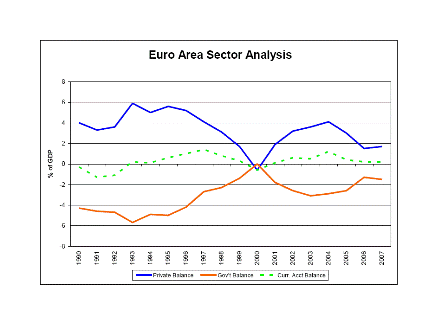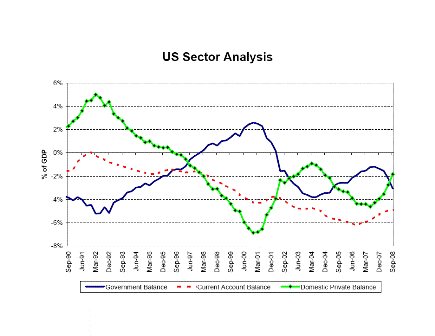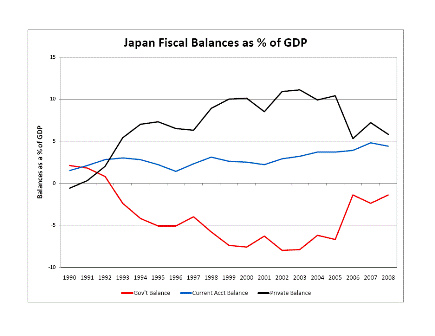> Karim writes:
> Surprising comments show political difficulties of QE in Europe. With fiscal policy constrained
> and the Euro strong, that means more pressure on ‘conventional’ monetary policy: ECB to
> keep o/n rate low for long.
Yes, agreed. Shows no understanding of monetary operations whatsoever.
With the old German model they had tight fiscal to keep domestic demand and costs down to drive exports. And they also bought $US to keep the mark at ‘competitive’ levels.
With the euro they are also keeping fiscal relatively tight to keep a lid on domestic demand and costs to drive exports, but can’t buy $US for ideological reasons (that would look like the euro is backed by dollars, etc.) so instead of exports rising the currency appreciates to levels where exports remain stagnant.
Merkel attacks central banks
by Bertrand Benoit and Ralph Atkins
June 2(FT) —Angela Merkel, the German chancellor, criticised the world’s main central banks in surprisingly strong terms on Tuesday, suggesting that their unconventional monetary policies could fuel rather than defuse the economic crisis.
The attack on the US Federal Reserve, the Bank of England and the European Central Bank is remarkable coming from a leader who had so far scrupulously adhered to her country’s tradition on never commenting on monetary policy.
“What other central banks have been doing must stop now. I am very sceptical about the extent of the Fed’s actions and the way the Bank of England has carved its own little line in Europe,†she told a conference in Berlin.
“Even the European Central Bank has somewhat bowed to international pressure with its purchase of covered bonds,†she said. “We must return to independent and sensible monetary policies, otherwise we will be back to where we are now in 10 years’ time.â€
Ms Merkel’s decision to ignore one of the cardinal rules of German politics – an unwritten ban on commenting monetary policy out of respect from central bank independence – suggests Berlin is far more concerned about the route taken by the ECB than had hitherto transpired.
Berlin is concerned that the central banks will struggle to re-absorb the vast amount of liquidity they are pouring into the markets and about the long-term inflationary potential of hyper-lose monetary policies.
The ECB’s efforts have been focused on pumping unlimited liquidity into the eurozone banking system for increasingly long periods. But last month (May), it followed the US Federal Reserve and Bank of England in announcing an asset purchase programme to help a return to more normal market conditions.
The ECB announced it had agreed in principle to buy €60bn in “covered bondsâ€, which are issued by banks and backed by public sector loans or mortgages.
The covered bond purchases, however, were only agreed after extensive discussions within the 22-strong ECB governing council. According to one version of May’s meeting, the council had discussed a €125bn asset purchase programme that would also have included other private sector assets, but only the purchase of covered bonds was agreed.
Axel Weber, ECB council member and president of Germany’s Bundesbank, has been among those who expressed scepticism about direct intervention in financial markets. In a Financial Times interview in April he expressed “a clear preference for continuing to focus our attention on the bank financing channelâ€.
Mr Weber has also been among the most proactive council members in warning that the monetary stimulus injected into the economy will have to be reduced or even reverse quickly once the economic situation improves.
Details of the covered bond purchase scheme will be unveiled by the ECB after its meeting on Thursday. One likely solution is that the package will be split according to eurozone countries’ capital shares in the ECB, which would result in Germany accounting for about 25 per cent of the €60bn programme. Meanwhile, the ECB is widely expected to leave its main interest rate unchanged at 1 per cent, its lowest ever.
[top]




